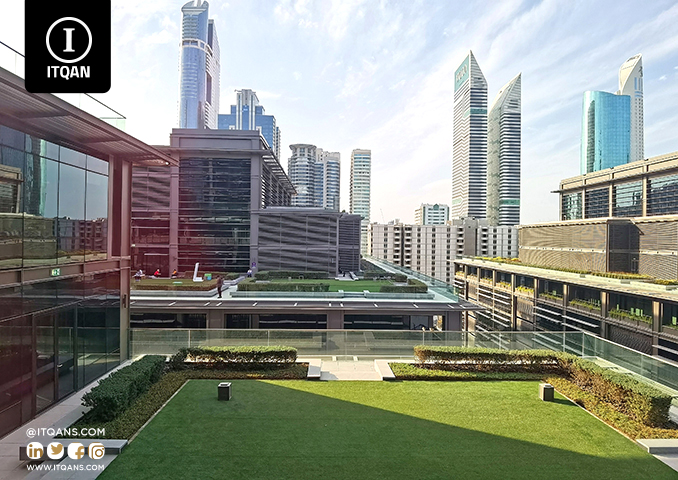In the UAE, free zones are a major platform for business development and investment promotion. These areas represent an ideal environment for local and international companies that wish to establish and expand their business activity. Thanks to advanced infrastructure, flexible legislation and modern facilities, free zones in the UAE are a great attraction for businessmen and investors alike. Free zones in the UAE are characterized by providing a wide range of services and benefits, including access to the regional and global market, Facilitated import and export operations, no taxes on profits, and facilitation of licenses and permits. Free zones also provide logistical and technical support to companies through advanced infrastructure and excellent logistics services. By providing a flexible and stimulating business environment, free zones in the UAE foster innovation and encourage investment in diverse sectors such as manufacturing, logistics, technology, tourism, Trade, and financial services. Free zones in the United Arab Emirates are considered a vital hub for the national economy, as they contribute to enhancing economic development, providing job opportunities, and stimulating innovation and competitiveness.

What are free zones?
Free zones are specific geographic areas within a particular country with distinct commercial and economic characteristics aimed at promoting investment and trade. These areas are characterized by a flexible business environment, as many incentives are offered to investors, such as tax exemptions, facilitation of company registration procedures, and freedom to transfer funds. The free zones also provide advanced infrastructure that includes industrial and commercial facilities, logistical facilities and administrative facilities. These characteristics contribute to attracting international and local companies, which enhances economic activity and contributes to growth and development. Free zones are an ideal destination for businesses seeking to benefit from a stimulating business environment and reduce operational costs.
How to establish a company in free zones
Establishing a company in the free zones in the United Arab Emirates requires following several steps. Below is an overview of the main steps of this process:
- Market study and planning: Before starting the process, you must study the local market and determine the type of company you want to establish and the business activities you want to practice in the free zone.
- Choosing a free zone: You must choose a free zone that suits your company’s needs, which may differ with regard to infrastructure, services provided, rules and legislation.
- Determine the legal type of company: The company can be a sole proprietorship, a limited liability company, or a joint stock company, and this depends on the company structure and the requirements of the business activity.
- Submitting the application and submitting documents: After choosing the region and determining the legal type of the company, you must submit an application to establish the company to the chosen free zone authority, submitting all required documents such as passports, identity photos, contracts, etc.
- Obtaining approvals and licenses: After submitting the application, you must wait for the application to be reviewed and to obtain the necessary approvals and licenses from the relevant authorities in the free zone.
- Company incorporation: After obtaining approvals, the final company incorporation procedures are completed, including signing contracts, paying the required fees, and registering the company in the commercial registry.
- Opening a bank account: A bank account must be opened for the company to manage financial transactions and receive payments and disbursements.
- Office Rental: You must rent an office or work space in the free zone to be the headquarters of your company.
- Necessary Licenses: A company may need to obtain additional licenses depending on the type and nature of the business it is conducting.
- Starting to work: After completing all procedures, you can start doing your business in the free zone.
The financial cost of establishing companies in free zones
The costs of setting up companies in free zones in the UAE vary based on several factors, including the type of company, the size of the planned business, and the legal and administrative requirements of the specific free zone. However, a rough estimate can be given of the costs that may arise from establishing companies in these regions:
- Registration and licensing fees: Registration and licensing fees must be paid to the relevant regulatory authorities, and these fees range between thousands and tens of thousands of UAE dirhams depending on the type of company and its activity.
- Legal consultation fees: You may need to consult a lawyer or legal advisor to help you prepare legal documents and ensure compliance with local legislation. The cost of this consultation varies depending on the advisor and the scope of services provided.
- Administrative services fees: You may need to pay administrative fees such as opening a bank account or renting an office or work space in the free zone.
- Insurance and registration fees: Some companies may need to pay insurance or registration fees to comply with local legislation.
- Labor Costs: If you intend to hire employees, you must factor in the costs of payroll, fringe benefits, and Social Security.
- Advertising and Marketing Costs: A company may need to invest in advertising and marketing to promote its services and increase brand awareness.
Documents required to establish companies in free zones
The documents required to establish companies in free zones in the UAE may vary slightly between different free zones depending on the type and legal structure of the company, and the requirements of local authorities. However, here is a general list of documents that are often required:
- Registration application form: This is the document that must be filled out to request company registration.
- Agreement document or articles of association: This is a document that defines the company’s structure, the powers of the officials, and the type of business it will carry out.
- Passports and copies of residence visas: for shareholders, directors and any other partners who may be necessary.
- Personal photos: for shareholders and directors.
- Certificates certified by banks: to prove the efficiency of shareholders in financing the company.
- Lease contracts or ownership documents: to confirm the address of the company’s headquarters.
- Financial Reports: Detailed financial reports are requested about the shareholders and financial sources of the company.
- Work permit application: If you intend to employ employees.
- Reports on planned activities: You may need to provide detailed reports on the company’s proposed business activities.
- Residence Permit Affidavit: In some cases, the authorities may request a Residence Permit Affidavit for shareholders or employees.

Free zones in the United Arab Emirates
The Emirates is considered one of the best commercial markets for investment in the world due to the facilities and advantages it provides to foreign and Gulf investors in particular. The Emirates and Dubai in particular are characterized by free zones, so investors aspire to establish a company in Jebel Ali in Dubai and other free zones in the Emirates. Dubai is considered the first The emirate applies the free zone model that offers foreign companies attractive privileges and many investment incentives. Dubai’s free zones seek 100% ownership rights for foreigners in addition to total tax exemption. There are currently 23 free zones operating in the emirate, established to serve specific sectors and industries, including information technology, real estate, communications, media, finance, gold and jewelry, and healthcare. With the presence of this number of free zones in the Emirate of Dubai, each of which offers advantages and capabilities different from the others, the importance of reviewing all the conditions and controls for establishing companies in these zones becomes apparent , and the necessity of reviewing all the capabilities and offers and calculating all costs before making the decision to invest in one of them.
- Dubai Free Trade Zone (Jebel Ali Free Zone – JAFZA): It is considered one of the largest free zones in the world, and includes many companies in various sectors such as logistics, manufacturing, and services.
- Dubai Free Zone: It includes several free zones such as the Dubai Media Zone, the Dubai Internet Zone, and the Dubai Aviation Zone, and provides an ideal environment for companies operating in different sectors.
- Sharjah Free Trade Zone (Sharjah Free Zone – SAIF Zone): Provides a developed business environment and a suitable investment climate for small and medium-sized companies, and promotes growth in the industrial, logistics and services sectors.
- Ras Al Khaimah Free Trade Zone (Ras Al Khaimah Free Trade Zone – RAKEZ): It is considered one of the leading free zones in the UAE, and supports companies in a wide range of sectors such as industry, services and trade.
- Abu Dhabi Free Zone: It works to provide a flexible and innovative business environment, and encourages competitiveness and innovation in various industries.
- Ajman Free Trade Zone: provides distinguished services to small and medium-sized companies and facilitates commercial procedures in sectors such as industry, trade and services.
The time period for establishing companies in free zones
The time period for establishing companies in free zones in the UAE is usually an issue that is affected by several factors, such as the type of company, its composition, and the administrative procedures followed in each free zone. However, a general estimate of the time frame for setting up companies in many free zones in the UAE can be provided, according to common procedures:
- National Free Zones (NAF): National Free Zones are considered one of the fastest zones in establishing companies, as companies can complete procedures within 2 to 5 business days.
- Dubai Free Zone (DAFZA) and Jebel Ali Free Zone (JAFZA): The process of setting up companies in DAFZA and JAFZA can take between 7 to 10 business days.
- Sharjah Free Zone (SAIF-Zone): SAIF-Zone are traditional free zones, and usually need about 10 to 14 business days to set up companies.
- Ras Al Khaimah Free Zone (RAK FTZ): RAK FTZ is fast in setting up companies, as new companies can complete the procedures within 2 to 5 business days.
- Abu Dhabi Free Zone (ADGM): ADGM varies slightly in procedures and timeliness, and can take 10 to 15 business days to set up.
Please note that these time periods are estimates and may vary based on the size and type of company and the administrative procedures requirements in each free zone. Therefore, it is always preferable to speak with an Itqan company incorporation to obtain an accurate estimate of the expected time to establish the company in the specific free zone.
Types of licenses available in free zones
In free zones, several types of licenses are available that allow companies to carry out different activities. Types of licenses vary depending on the specific business activity of each free zone, but generally include the following types:
- Commercial license: allows companies to carry out commercial activities such as buying and selling products and goods.
- Industrial License: Allows the establishment of factories and industrial facilities to produce and manufacture goods and merchandise.
- Service license: enables companies to provide various services such as consulting, information technology, financial services, and legal services.
- Import and export license: allows companies to carry out import and export activities of goods and commodities across international borders.
- Office license: Allows the establishment of an administrative office without the need for industrial or commercial facilities, and is based on administrative and commercial activities.
- Commercial-Industrial License: Combines commercial and industrial activities, allowing companies to engage in both manufacturing and trade.
- E-commerce license: intended for companies operating in the field of online commerce and providing electronic services.
- Service center license: includes providing customized services such as technical support, customer services, and facilities management.
- Limited commercial license: Granted to a limited number of commercial activities within a specific scope, usually designed for small or emerging companies.
- Subsidiary company license: Allows the establishment of a branch of an existing international company in the free zone.
The main advantages of establishing a company in a free zone
Establishing a company in a free zone offers many advantages that attract investors and entrepreneurs. Among the main advantages:
- Tax breaks: Companies in free zones often benefit from full tax breaks on profits, reducing financial burdens and increasing profitability.
- Full Foreign Ownership: Free zones allow foreigners to own 100% of a company’s shares, providing full control to non-citizen investors.
- Exemptions from customs duties: Investors enjoy exemptions from customs duties on import and export, which contributes to reducing trade costs.
- Ease of procedures: Free zones provide smooth and quick procedures for registering and establishing companies, which facilitates starting a business and saves time.
- Full transfer of profits: All profits are allowed to be transferred abroad without restrictions, which contributes to improved flexibility of money management.
- Facilitations in licensing: Free zones provide various licenses that meet the needs of different companies, including commercial, industrial and service activities.
- Advanced infrastructure: Free zones offer advanced infrastructure that includes offices, industrial facilities and warehouses, which supports growth and innovation.
- Access to international markets: Free zones represent a gateway to international markets, thanks to their strategic location and global trade agreements.
- Work and residence visas: Free zones provide facilities for obtaining work and residence visas for investors and employees.
- Supportive business environment: Free zones provide a stimulating business environment, with government support and specialized institutions that help companies grow and expand.
The role of Itqan Company in helping you establish a company in the free zones
Itqan Company provides many services to help establish companies in free zones in the Emirates. Here are some of the roles played by Itqan Company in this context:
- Legal and commercial consultations:
Providing the necessary consultations on the types of companies suitable for your business activity and legal legislation related to establishing companies in free zones. - Preparing documents and documentation:
Assistance in preparing and organizing the documents necessary to establish the company, such as contracts, internal memos, and financial reports. - Registration and licenses:
Providing assistance in the registration process and obtaining the necessary licenses from the competent government agencies in the free zone. - Communication with relevant authorities:
Representing and communicating with government agencies and various institutions in the free zone to facilitate the establishment processes and obtain the necessary approvals. - Coordination with local partners:
Providing support in dealing with local partners and suppliers and providing a network of strategic relationships to support the company’s success. - Assistance in obtaining banking and financial services:
Facilitating the process of opening bank accounts and obtaining the financial services necessary to start a business. - Training and Development:
Providing training courses and development programs for human cadres and providing them with the skills and knowledge necessary to manage the company efficiently. - Accompaniment and follow-up:
Following up on the company’s performance after establishment and providing support and advice to improve performance and achieve the desired goals.
These services are part of Itqan Company’s role in facilitating and accelerating the process of establishing companies in free zones, and providing comprehensive support to investors to achieve the success of their businesses in the Emirates.
At the conclusion of our article about free zones in the United Arab Emirates, it is clear that these zones provide an ideal environment for investors and companies wishing to grow and expand. Thanks to the many advantages they offer, such as tax exemptions, 100% foreign ownership, and simplified procedures, free zones have become a preferred destination for both foreign and domestic investments.
The diversity of licenses and activities that can be practiced, along with modern infrastructure and advanced facilities, enhances the ability of companies to achieve success and innovation. With continuous support from government agencies and comprehensive services available, investors can look forward to promising opportunities and achieve their business goals efficiently and quickly.
Frequently asked questions about free zones in the United Arab Emirates
What are the free zones in the UAE?
Free zones are economic zones established to encourage investments and provide an ideal environment for business, manufacturing and services.
What benefits do free zones provide to companies?
Benefits include tax exemptions, customs facilities, advanced infrastructure, and flexible laws.
What are the main sectors covered by free zones in the UAE?
Free zones cover various sectors such as logistics, manufacturing, technology, financial services, aviation, and others.
What are the necessary steps to establish a company in the free zone?
The steps include preparing the necessary documents, submitting applications, obtaining licenses and permits, and signing the necessary contracts.
Do companies have to pay taxes in free zones?
Companies in free zones enjoy tax exemptions for a specific period, and some may even be completely exempt from taxes.
What additional services do free zones provide to companies?
Free zones provide services such as logistical support, financial facilities, training and development, and access to business and customer networks.
Can foreign companies establish branches in free zones?
Yes, foreign companies are allowed to establish branches or subsidiaries in free zones under local laws and regulations.
Do free zones require licenses for different activities?
Yes, companies must obtain the necessary licenses to practice their various activities, and this process is carried out in accordance with the laws and regulations issued by the competent authorities in the free zone.
